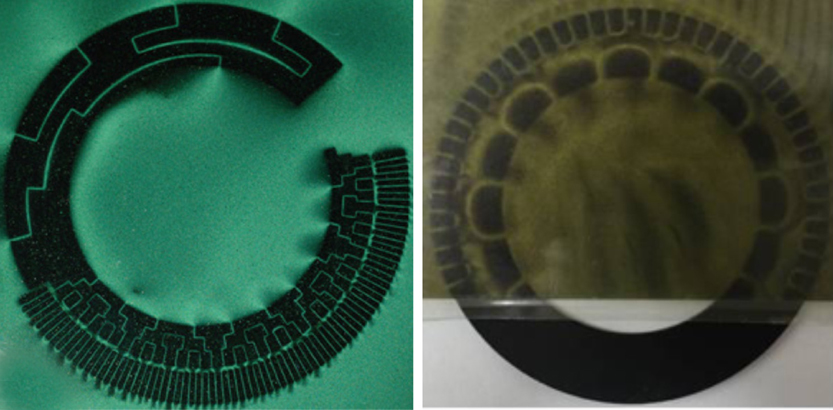In the encoder, the role of the magnet is not small, the use of more magnetic materials are neodymium, ferrite, today mainly to say that the magnet is mainly used for what kind of encoder, what is the role.
What is the function of a magnet in an encoder?
In the encoder, the magnet mainly plays a role in position detection, magnetic sensing, and magnetic field positioning.
The picture below is the encoder magnetic ring;

What types of encoders are magnets mainly used for?
Magnets are widely used in different types of encoders, mainly as part of magnetic encoders. Here are several common types of encoders in which magnets are used:
1. Magnetic rotary encoder: This encoder determines the Angle or position by measuring the rotary motion. It consists of a magnet placed on a rotating axis and a sensor (such as a Hall sensor or a reluctance sensor). When the rotation axis rotates, the position of the magnet also changes, and the sensor detects the change in the magnetic field and converts it into the corresponding electrical signal.
2. Magnetic linear encoder: This encoder is used to measure the displacement of an object in a straight line direction. It consists of a magnet mounted on a moving part and a sensor assembly. When the moving part moves, the sensor detects a change in the position of the magnet and converts it into a digital signal of linear displacement.
3. Magnetic incremental encoders: This encoder uses magnets and sensors to measure incremental (incremental) changes in motion. They are commonly used to measure relative displacement in rotation or linear motion.
4. Magnetic absolute encoders: This encoder uses magnetic technology to measure the absolute position without the need to re-calibrate the zero position after the power is disconnected. Magnetic absolute encoders are generally more suitable for applications that require high accuracy and reliability.
The application of magnets in encoders brings many advantages. They offer high accuracy, reliability and durability, and are able to work well in harsh environments. In addition, magnetic encoders have the ability to measure without contact, eliminating the need for physical contact, reducing the risk of wear and damage.
In summary, by using magnets and magnetic induction principles, magnetic encoders enable precise measurement and control of position, Angle and motion. This makes them widely used in many application fields, including mechanical engineering, automated control systems, robotics, motor control, instrumentation, robotics, etc.
Hot selling encoder magnet product recommendation;
Encoder Double Path Magnetization Injection Molding Ferrite Ring
Magnetic encoder multipole ring magnet 62 64 pole OD 34mm
Encoder single-sided multipole ferrite ring magnet 34mm x 2.5mm
Robot Encoder Dual-Channel Magnetic Ring 56x38x1.1mm
Introduction to Other Encoder Magnets;
 China Neodymium And Ferrite Magnets Manufacturer & Supplier
China Neodymium And Ferrite Magnets Manufacturer & Supplier 


